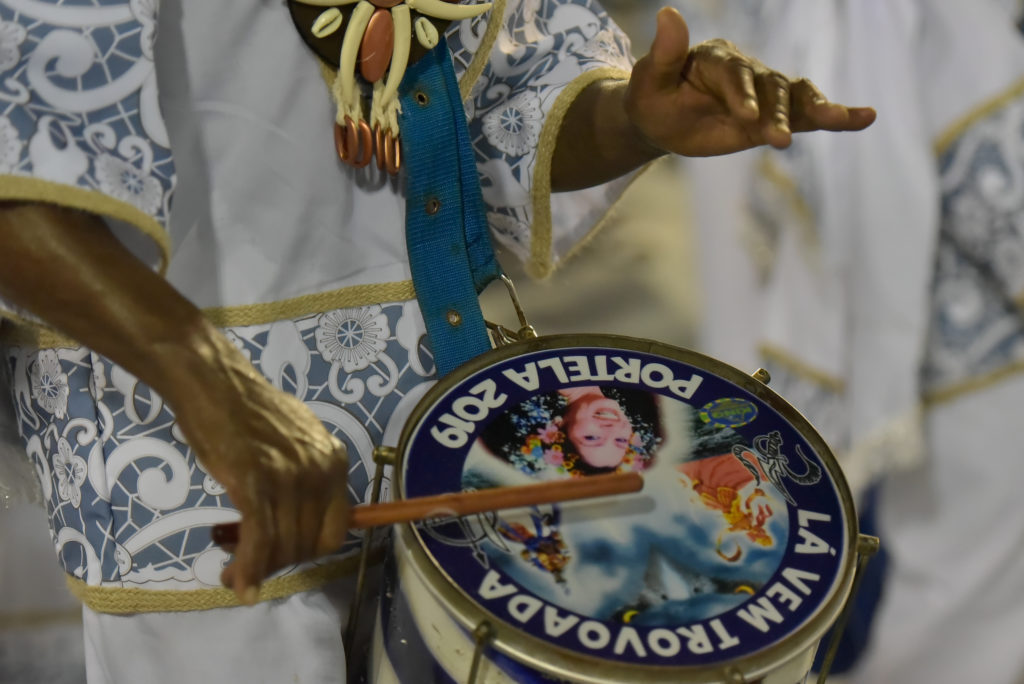São Paulo – A concert devoted to the Arab-Brazilian musical connection would surely be a long one. The topic was discussed by historian and Arab Brazilian Chamber of Commerce (ABCC) cultural director Silvia Antibas during a live stream this Thursday (26). The musical links include originally Arab instruments, rhythms brought to Brazil by immigrants from the Iberian Peninsula, enslaved Muslims, and even songwriters and singers of Arab descent.
The live stream was hosted by the ABCC in partnership with the Embassy of Brazil in Lebanon, via the Brazil-Lebanon Cultural Center. Antibas went over references that hark back to the arrival of the Portuguese in Brazil. “Those peoples from the Iberian Peninsula [Portugal and Spain] introduced Arab influence in Brazil. Portuguese music, such as the fado, cannot be studied without looking into the influence of the Andalusian territory,” she explains, referencing a region that was greatly influenced by Arab peoples.
- Check out all of ANBA’s stories on Culture here

African slaves, many of whom were Muslims, brought along songs and prayers in Arabic. To explain Arab influence on samba music, Antibas discussed the history of the Malês, a Muslim, Arabic-speaking people called the nago (aka Yoruba) who were enslaved and brought to Brazil. “Those groups migrated from Bahia to Rio de Janeiro, bringing influences like the batucada, which would later inform samba. The first-ever samba song, ‘Pelo Telefone’ (On the Telephone), was written by Ernesto dos Santos in 1917,” the researcher explained.
When it comes to samba, the adufe, an Arab tambourine similar to Brazil’s pandeiro, is part of the history of Portela (pictured at the top of this page), one of Brazil’s biggest samba schools (foto no topo da matéria). Antibas said that the jingle-less adufe was part of the songwriting process and of old-school meetings. It is mentioned in the book “A Velha Guarda da Portela” (Manati, 2001) by singer-songwriter Paulinho da Viola. The book was written by João Baptista de Medeiros Vargens, an Arabic professor at the Department of Oriental and Slavic Languages of the Federal University of Rio de Janeiro (UFRJ), and by Carlos Monte.
- You may also enjoy reading: The beat of Arab percussion

Antibas also drew a parallel between Northeast Brazil’s repente music style and the Arab jazal, both of which are improvisation-driven forms. “Both the verses and the sounds are improvised in the repente and in the Arab jazal,” she said. Songs in the marchinha genre of Brazilian Carnaval music have been directly influenced by Arab stories, like Alladin and Sinbad, and some are satires, like the classic ‘Allah-la-ô.’
The list of Brazilian musicians of Arab descent runs the gamut from rock to Brazilian folk. They include Frejat, André Abujamra, Fagner, Fauzi Beydoun of the band Tribo de Jah, Dorival Caymmi, and Ricardo Feghali of the Roupa Nova group, whose aunt is the Lebanese singer Sabah. The live stream featured the Brazilian musician Valtinho Cayuella, who played several Brazilian songs featuring an Arab touch.
The stream is available on the ABCC’s Facebook page.
Translated by Gabriel Pomerancblum




